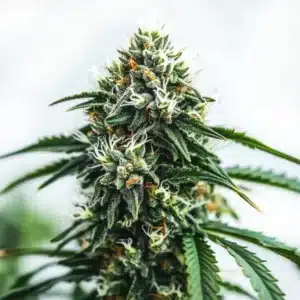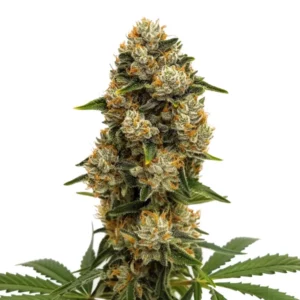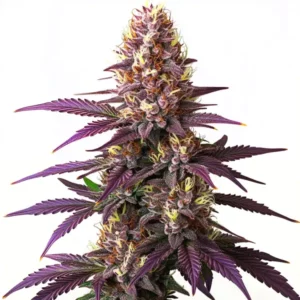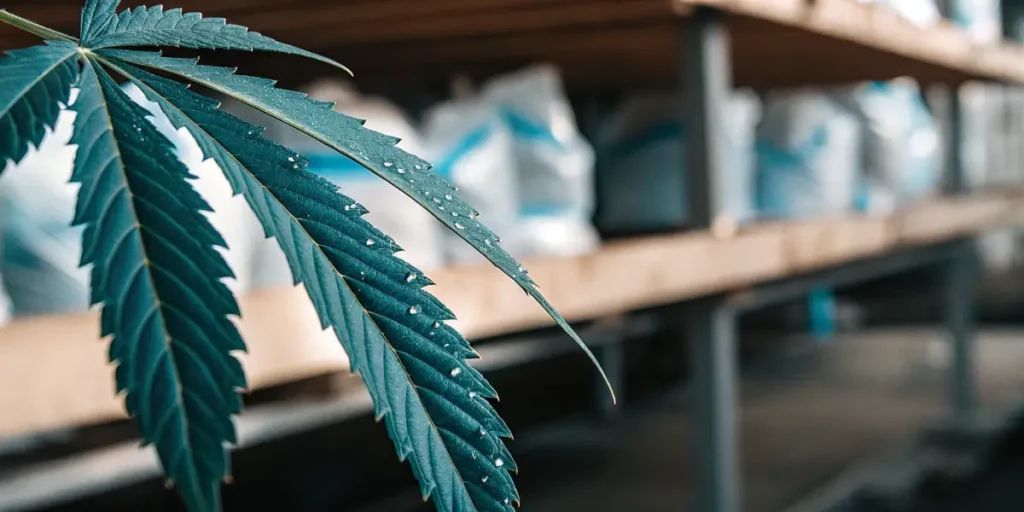
Best Fertilizers for Nitrate Assimilation in Cannabis
Choosing the right fertilizer is crucial for cannabis growers who want to maximize nitrate assimilation. This process helps plants use nitrogen efficiently, promoting healthy growth and abundant yields. The best fertilizers for nitrate assimilation in cannabis can make a significant difference in your cultivation results.
Organic fertilizers are often preferred by growers looking for a natural approach. They support nitrate uptake by improving soil health and providing essential nutrients. Products like compost and worm castings are among the best organic fertilizers for cannabis nitrate uptake, offering a sustainable way to enhance growth.
Recommended Strains
OG Kush
|
|
THC | 20% - 24% (Medium) |
|
|
Type | Feminized |
|
|
Yield | Medium |
|
|
Phenotype | 55% Indica / 45% Sativa |
Strawberry Cough
|
|
THC | 19% - 23% (Medium) |
|
|
Type | Feminized |
|
|
Yield | Medium |
|
|
Phenotype | 30% Indica / 70% Sativa |
High-efficiency nitrate assimilation fertilizers for cannabis can significantly boost your plants’ health. These products are designed to optimize nitrogen metabolism, ensuring your cannabis receives the nutrients it needs. When choosing fertilizers, consider those that enhance nitrate metabolism in cannabis plants.
Why Nitrate Assimilation Matters
Nitrate assimilation is vital because it directly impacts plant growth and development. Cannabis plants need nitrogen for photosynthesis, which is how they convert light into energy. Proper nitrate assimilation means your plants can grow stronger and produce more buds.
For both first-time growers and seasoned cultivators, understanding nitrate assimilation helps in selecting the best fertilizers. This knowledge allows you to tailor your fertilization approach, ensuring your cannabis plants reach their full potential. Improved nitrate uptake leads to healthier plants and larger yields.
The process of nitrate assimilation not only supports overall plant vigor but also enhances resistance to pests and diseases. By ensuring your plants have access to the necessary nutrients, you can create a more resilient crop that thrives under various conditions. This resilience is especially important in organic farming systems where chemical interventions are minimized.
Additionally, effective nitrate assimilation can reduce the environmental impact of cannabis cultivation. By optimizing nutrient uptake, you minimize nutrient runoff and leaching, which can contribute to soil and water pollution. This sustainable approach not only benefits your plants but also supports broader ecological balance.
Promos & Deals
Choosing the Right Fertilizer
When selecting fertilizers, consider those that improve nitrate metabolism in cannabis plants. Look for products that provide a balanced nutrient profile, supporting overall plant health. Ingredients like calcium and magnesium can enhance nitrate uptake, promoting robust growth.
Some fertilizers are specially formulated to enhance nitrate assimilation. These top fertilizers for enhancing cannabis nitrate assimilation deliver nutrients in a form that’s easy for plants to absorb. Products with a slow-release formula can provide a steady nutrient supply, reducing the risk of over-fertilization.
Besides to traditional fertilizers, incorporating bio-stimulants can further enhance nitrate assimilation. These products work by promoting beneficial microbial activity in the soil, which aids in nutrient uptake and plant growth. When used alongside the best fertilizers for nitrate assimilation in cannabis, bio-stimulants can offer a comprehensive approach to plant nutrition.
It’s also important to consider the specific growing conditions of your cannabis plants. Factors such as soil type, climate, and water quality can influence nutrient availability and uptake. Selecting fertilizers tailored to these conditions can optimize nitrate assimilation and improve overall plant performance.
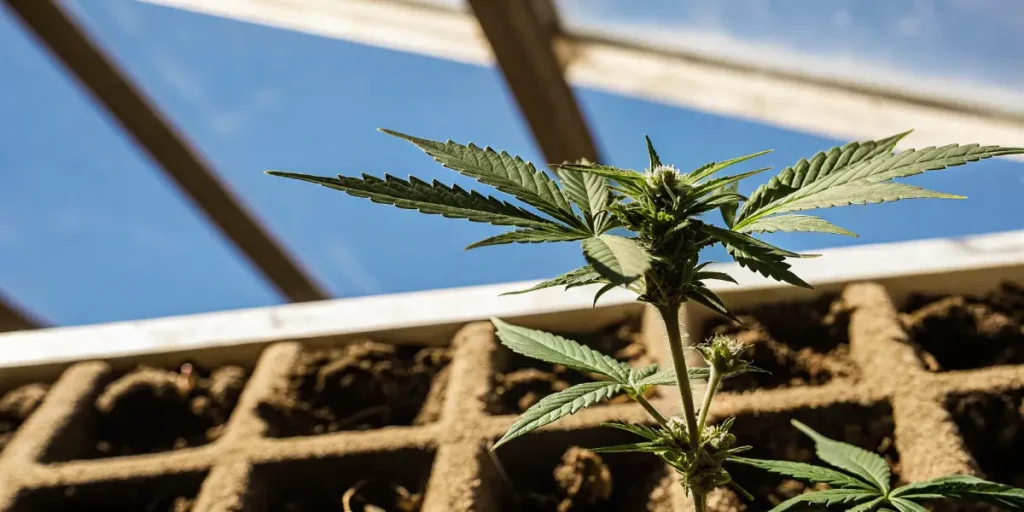
Top Fertilizers for Cannabis
One highly recommended option is a balanced NPK fertilizer, which stands for nitrogen, phosphorus, and potassium. This type of fertilizer provides essential nutrients that support nitrate assimilation. Look for a product with a higher nitrogen content to boost growth.
Another excellent choice is a liquid fertilizer, which can be applied directly to the soil or through foliar feeding. Liquid fertilizers are absorbed quickly, making them ideal for addressing nutrient deficiencies. Choose a formula designed for high-efficiency nitrate assimilation fertilizers for cannabis.
Among the best organic fertilizers for cannabis nitrate uptake, fish emulsion is a popular option. It offers a rich source of nitrogen and other essential nutrients while promoting microbial activity in the soil. As a natural product, it is well-suited for organic growing practices and supports healthy plant development.
For those seeking top fertilizers for enhancing cannabis nitrate assimilation, products enriched with seaweed extract are worth considering. Seaweed is packed with micronutrients and growth hormones that can boost plant metabolism and resilience. When integrated into your fertilization plan, these products can significantly enhance nitrate uptake and utilization.
Recommended Nutrients for Nitrate Absorption
Calcium is a key nutrient that supports nitrate absorption. It strengthens cell walls and aids in nutrient transport within the plant. Fertilizers that include calcium can enhance nitrate uptake, leading to stronger, more resilient plants.
Magnesium is another important nutrient for cannabis. It plays a critical role in chlorophyll production, which is essential for photosynthesis. By including magnesium in your fertilization plan, you can improve nitrate metabolism in cannabis plants.
Sulfur is often overlooked but equally vital. It helps in the formation of amino acids, which are building blocks of proteins. A fertilizer that contains sulfur can boost nitrate assimilation, contributing to healthy plant growth.
Besides to these nutrients, boron is a micronutrient that facilitates nutrient uptake and cell wall formation. Including boron in your fertilization strategy can enhance the overall efficiency of nitrate assimilation. The combination of these recommended nutrients for nitrate absorption in cannabis ensures a comprehensive approach to plant health and productivity.
Cannabis Strains and Fertilization
Certain cannabis strains may respond differently to fertilizers. For example, the strain OG Kush from Blimburn Seeds is known for its robust growth and may benefit from fertilizers that enhance nitrate uptake.
Another popular choice is the Strawberry Cough strain. This variety thrives with balanced nutrients, making it ideal for testing different fertilization strategies. Consider using top fertilizers for enhancing cannabis nitrate assimilation for this strain.
The Blue Dream strain is a favorite among growers for its high yields. It performs well with fertilizers that improve nitrate metabolism in cannabis plants. Choose products that support robust growth to make the most of this strain’s potential.
Knowing the unique nutritional needs of each cannabis strain can lead to more successful cultivation outcomes. By tailoring your fertilization approach to specific strains, you can optimize growth conditions and maximize yields. This customization is particularly beneficial in large-scale operations where uniform plant performance is critical.
Moreover, experimenting with different fertilizers can reveal insights into how various strains respond to nutrient inputs. Documenting these observations can inform future growing cycles and help refine your fertilization strategy over time. This iterative approach to cultivation ensures continuous improvement and adaptation to evolving growing conditions.
Practical Tips for Fertilizer Application
When applying fertilizers, timing is crucial. Start with a low dose and gradually increase as your plants grow. This approach helps prevent nutrient burn, which can harm your plants. Pay attention to your plants’ response and adjust your fertilization schedule accordingly.
Watering is another critical factor. Ensure your plants receive enough water to dissolve and transport nutrients effectively. Over-watering can lead to nutrient leaching, so find a balance that keeps your plants hydrated without washing away valuable nutrients.
To further optimize fertilizer application, consider using precision agriculture techniques. Tools like soil moisture sensors and nutrient meters can provide real-time data on plant needs, allowing for more accurate nutrient delivery. This technology-driven approach can enhance the effectiveness of the best fertilizers for nitrate assimilation in cannabis.
Lastly, keep detailed records of your fertilization practices, including the types of fertilizers used, application rates, and plant responses. This documentation serves as a valuable resource for future growing cycles, helping you refine your approach and achieve consistent results. Continuous learning and adaptation are key to successful cannabis cultivation.
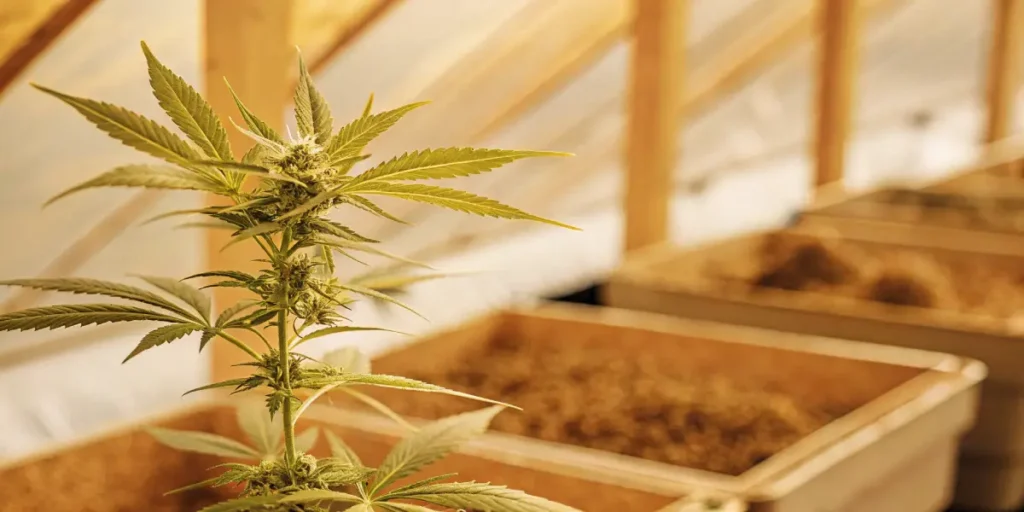
FAQs about Best Fertilizers for Nitrate Assimilation in Cannabis
What are the best fertilizers for nitrate assimilation in cannabis?
The best fertilizers for nitrate assimilation in cannabis are those that provide a balanced nutrient profile with a focus on nitrogen. Products like balanced NPK fertilizers and liquid formulas designed for high-efficiency nitrate assimilation are excellent choices. Organic options such as compost tea also support nitrate uptake while improving soil health.
These fertilizers work by providing essential nutrients that enhance nitrate metabolism, ensuring your cannabis plants can absorb and utilize nitrogen effectively. This leads to stronger growth and increased yields, making these products valuable for both novice and experienced growers.
Using a combination of organic and synthetic fertilizers can sometimes offer the best of both worlds. Organic fertilizers improve soil health and structure, while synthetic options ensure immediate nutrient availability. This hybrid approach can maximize nitrate assimilation and support robust plant growth.
Additionally, incorporating fertilizers that contain beneficial microorganisms can further enhance nutrient uptake. These microorganisms assist in breaking down organic matter and converting nutrients into forms that plants can easily absorb. This symbiotic relationship contributes to healthier plants and more efficient nitrate assimilation.
How do organic fertilizers compare to synthetic ones for nitrate uptake?
Organic fertilizers are derived from natural sources and are often preferred for their environmental benefits and soil health improvement. They support nitrate uptake by enhancing soil structure and microbial activity. Organic options like compost and worm castings release nutrients slowly, providing a steady supply that plants can absorb.
Synthetic fertilizers, on the other hand, are formulated for immediate nutrient availability. They can be effective in delivering nutrients quickly, which is beneficial for addressing deficiencies. However, they may require careful management to prevent over-fertilization and potential harm to the soil ecosystem.
While both organic and synthetic fertilizers have their advantages, the choice often depends on your cultivation goals and values. Organic products are ideal for those prioritizing sustainability and soil health, while synthetic options may be preferred for their convenience and precision. Understanding the strengths and limitations of each can guide your fertilization strategy.
In some cases, integrating organic matter into soil treated with synthetic fertilizers can enhance nutrient retention and reduce leaching. This combination leverages the immediate benefits of synthetic fertilizers while building a healthier soil environment over time. Such an approach can lead to improved nitrate assimilation and overall plant health.
Can I use the same fertilizer for all cannabis strains?
While many fertilizers can be used across different cannabis strains, it’s essential to consider each strain’s specific needs. Some strains, like OG Kush, benefit from fertilizers that enhance nitrate uptake, while others, like Strawberry Cough, may require a balanced nutrient approach.
Experimenting with different fertilizers can help you determine what works best for each strain. Monitoring your plants’ growth and adjusting your fertilization strategy can lead to optimal results. Researching the specific needs of each strain you grow can also guide your fertilizer choices.
It’s also important to consider the growing stage of your cannabis plants when selecting fertilizers. Young plants have different nutrient requirements compared to mature ones. Tailoring your fertilization plan to both the strain and growth stage can ensure that your plants receive the best fertilizers for nitrate assimilation in cannabis.
Moreover, environmental factors such as light intensity, temperature, and humidity can influence how different strains respond to fertilizers. By taking these variables into account, you can fine-tune your fertilization strategy to support optimal growth conditions and maximize yields.
How often should I apply fertilizers to my cannabis plants?
The frequency of fertilizer application depends on the product you use and your plants’ growth stage. Generally, starting with a low dose once a week and gradually increasing as your plants mature is a good approach. Always follow the manufacturer’s instructions for best results.
Monitoring your plants’ response is crucial. If you notice signs of nutrient deficiency or excess, adjust your fertilization schedule accordingly. Regular observation ensures your plants receive the nutrients they need without the risk of over-fertilization.
Besides to regular applications, consider implementing a foliar feeding strategy. This involves applying liquid fertilizers directly to the leaves, allowing for rapid nutrient absorption. Foliar feeding can be especially beneficial during critical growth phases or when plants show signs of deficiency.
Furthermore, periodic soil testing can provide insights into nutrient levels and help refine your fertilization schedule. By knowing the nutrient dynamics in your growing medium, you can make informed decisions about when and how much fertilizer to apply, optimizing the use of high-efficiency nitrate assimilation fertilizers for cannabis.
What are signs of nutrient deficiency in cannabis plants?
Nutrient deficiencies in cannabis plants can manifest in various ways. Common signs include yellowing leaves, stunted growth, and poor bud development. If your plants are not receiving enough nitrogen, you may notice pale leaves and reduced vigor.
Addressing nutrient deficiencies promptly is essential for healthy plant growth. Adjusting your fertilization strategy, ensuring adequate water supply, and checking soil pH can help correct deficiencies. Regular monitoring and timely interventions can keep your plants thriving.
Beside to visual symptoms, nutrient deficiencies can impact the overall yield and quality of your cannabis. Reduced bud size, diminished aroma, and lower cannabinoid content are potential consequences. Using recommended nutrients for nitrate absorption in cannabis can help prevent these issues and support optimal plant performance.
To diagnose and address deficiencies effectively, consider consulting with agricultural professionals or utilizing diagnostic tools such as tissue analysis. These resources can provide precise information on nutrient levels and guide your fertilization decisions, ensuring that your plants receive the best care possible.





